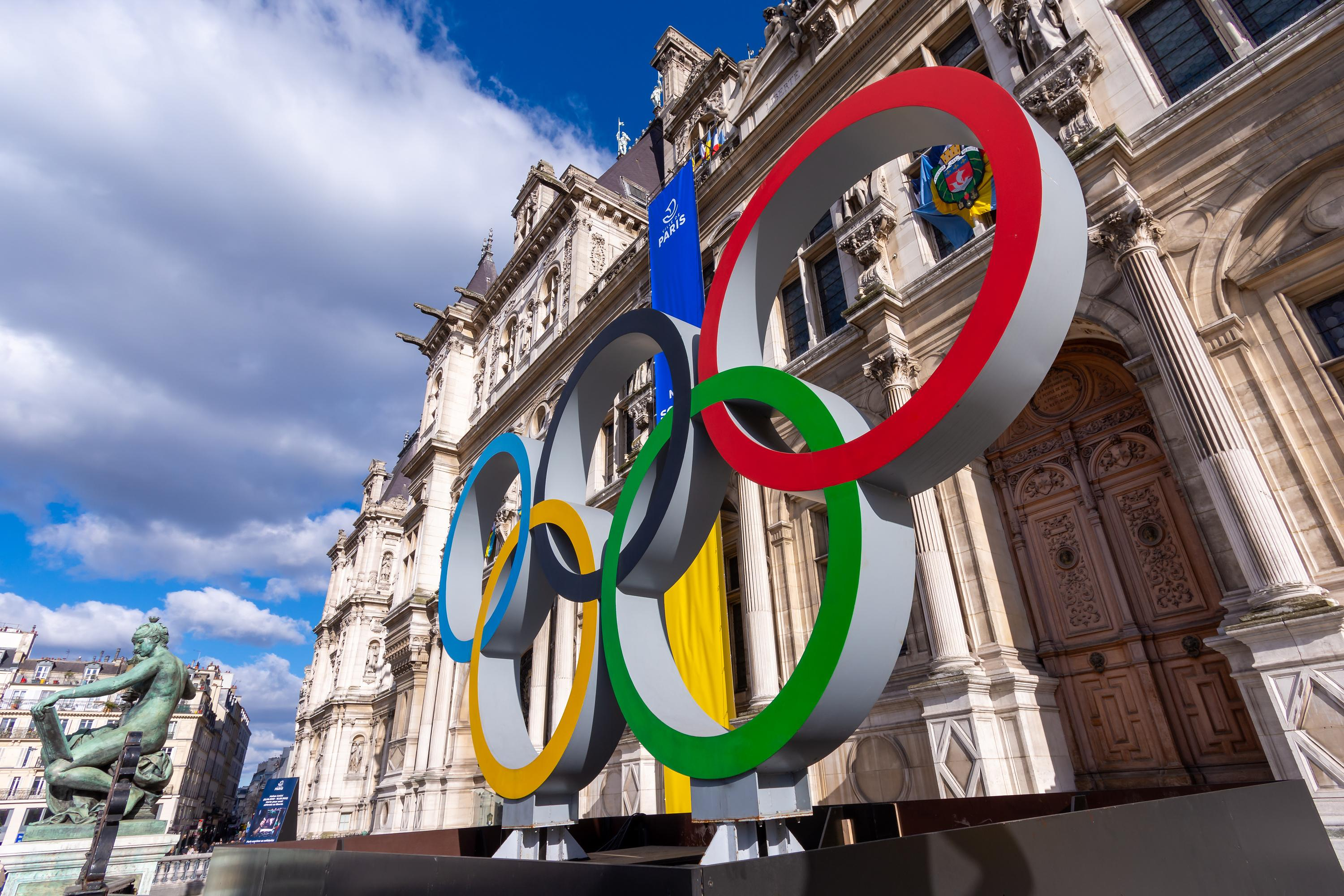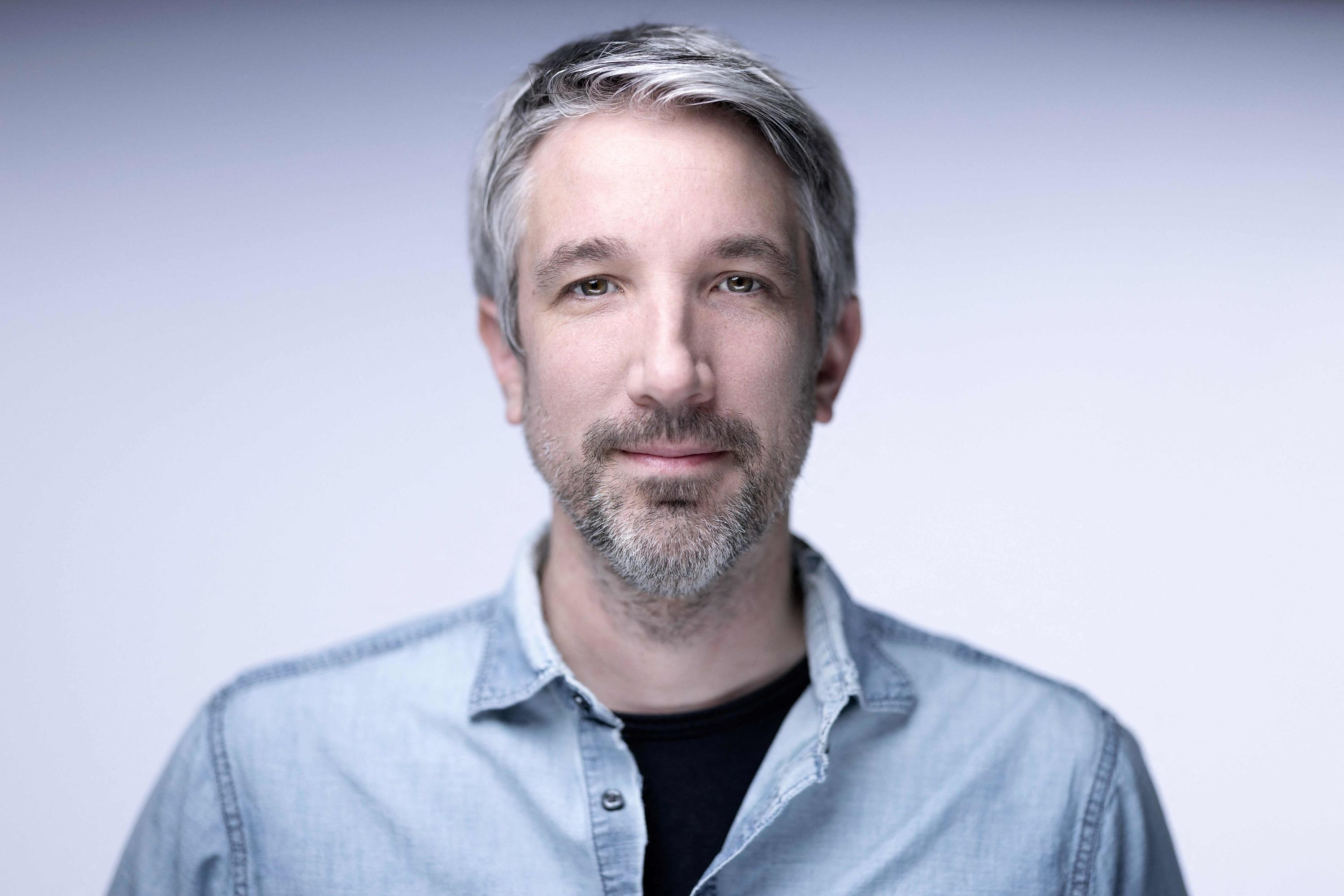Crowd movements, discomfort, accidents... How will medical and emergency services be organized for Paris 2024? “We work with all state services, our strategy has been validated for a year,” explained the head of medical services for the Organizing Committee for the Olympic and Paralympic Games (COJOP), Pierre Mauger, during a press conference organized on the occasion of the Secours Expo exhibition, on January 31 at Porte de Versailles. “It’s not because the Olympics are an event that we have to do anything differently [than usual]. We know how to do it,” he insisted. Organized from July 26 to August 11 then from August 28 to September 8, the event will be large-scale: 16 million visitors are expected in Paris and the regions, and the events will take place on 39 sites.
In sports venues and their waiting areas, it is the COJOP which will be responsible for managing emergency services, with the help of associations such as the Red Cross. Outside of these areas, the General Directorate of Civil Security and Crisis Management (DGSCGC), which depends on the Interior, will coordinate voluntary emergency services and those dependent on the State (SAMU and firefighters). The Île-de-France Regional Health Agency (ARSidf) has developed the management plan for hospitals in the Paris region. For community medicine and private hospitals and clinics, “we will be required to communicate in the coming weeks,” specifies the ARSidf.
SAMU, firefighters, Red Cross or civil security are only part of all the participants in medical security for the Olympics. Very diverse worlds and not always used to working together. “This is an opportunity to show that our system is one of the most efficient in the world with actors who take action. The eyes of the whole world will be on us,” pleaded Professor Pierre Carli, special advisor to the Ministry of Health for the 2024 Olympics after twenty-five years at the head of Samu de Paris. But he reassures: “The Olympics are not a new epidemic!”
First aid associations are involved at different stages of emergency management. The legal framework must not prevent them from acting and providing assistance, insists Julien Pailhere, sub-prefect and head of the piloting office at the DGSCGC of relief actors. These associations “are very useful”, testifies Dr Mathias Wargon, head of the emergency department-SMUR at the Delafontaine hospital center in Saint-Denis. A group of 5 associations will support Paris 2024: the Red Cross, the White Cross, the Order of Malta, the UNAS (National Union of First Aid Associations) and the FFSS (French Rescue and First Aid Federation, particularly in the middle aquatic). And despite the lack of subsidies and the absence of the “charity partner” label that the British Red Cross obtained for the London Olympics in 2012, “all civil security associations have launched recruitment efforts. We are able to recruit volunteers with an increase of 5 to 15% depending on the region,” explained Florent Vallée, director of emergencies and operations at the French Red Cross. However, he highlighted the lack of volunteer middle managers. They are generally nurses, explains Dr Mathias Wargon, but they will already be busy in their hospitals during the Games. However, the mobilization of foreign aid is not on the agenda for the moment, indicated Julien Pailhere.
Also read: These fake volunteers who will try to sabotage the 2024 Olympics
Paris 2024 uses the recommendations of the Samu and emergency services of France for the management of the public in sports venues and in waiting areas. In this document, certain parameters make it possible to adjust emergency and medical personnel, such as the qualification of the public (calm, agitated, alcoholic or drugged, etc.), posture (sitting, standing or in the waiting area), or the outside temperature. Pierre Mauger emphasized that “the risk mapping is defined. We identify site by site who are responsible for security, this is at the end of writing and will be presented to the prefectures for validation. In sports competition sites, “as long as we don't need to call the SMUR we are independent. If we are overwhelmed, state services will come and lend a hand.”
On the hospital side, “the challenge is to find a happy medium between two risks: insufficient mobilization in relation to needs, or overmobilization which could penalize the availability of caregivers for the rest of the summer,” explains to Le Figaro. ARS. But “the profile of ticket holders is rather young, generally under 35 years old, with families, a sporting profile and strong purchasing power,” indicates the ARS. A public a priori in good physical shape, and not among the most likely to fall ill or adopt risky behaviors. The expected desertion of Ile-de-France residents during the holidays could also help avoid saturating medical services.
Also read Île-de-France: tourist numbers up 7% thanks to the Rugby World Cup
Concern, however, is growing about the possibility of a heatwave. Weather models do not allow this to be predicted so early, but we know that the risk increases with climate change. This is evidenced by a study published in the journal Nature in November 2023, which predicts, over the period 2020-2050, the record of 39.5°C measured in a Parisian park in August 2023 will be exceeded by around 4°C. city of Paris worked on a Paris 50°C plan,” indicated General Didier Chalifour, chief of staff of the general secretariat of the Paris defense and security zone in charge of Olympic security. “In the event of a heatwave, we have action plans ready and risk management is done with the public authorities – ministry and ARS,” specifies the AP-HP. “We are prepared for a certain number of weather risks such as violent storms on the Seine, heatwaves, gales,” adds Pierre Mauger. All these risks are grouped together at the Ministry of the Interior and the General Directorate of Health, we establish the health risks.
In addition to a heat wave, “the big fear is an attack or an epidemic,” explains Dr. Mathias Wargon. “The joy will extend beyond the perimeters placed under the responsibility of the Paris 2024 organizer. The most important risk is the grouping of people at a given point,” concedes General Didier Chalifour, who plans the presence of emergency services on the sites of sports competitions, festivals and transport. He thus announced a reinforcement of 500 firefighters in Paris, and recognized that the Olympic Games made it possible to accelerate work on provisions linked to serious events. “We fear exceptional health situations, we do exercises which are done during our time at the hospital which is already very busy. It is difficult to train,” judges Dr. Wargon.
A map has been drawn up to assign a reference hospital to each street or sports venue, in order to facilitate the transport of sick or injured people. A map that has evolved over time: “At the start of the creation of the management plans, everything was centered on the AP-HP but our hospital center is not part of it, and it had not been taken into account. account,” smiles Mathias Wargon, whose emergency room is located some 2 kilometers from the Stade de France. “We were brought into the plan after that.” The doctor has “the impression that we started from enormous problems, but that we are starting to become more responsible”.
Paris hospitals are planning the opening of a temporary polyclinic reserved for athletes and their delegations in the Olympic village, financed “to the nearest euro” by Paris 2024. Pierre Mauger specifies having consulted each sports federation, which may have rules different medical care. Athletes will be referred to the Bichat hospital in Paris when the polyclinic cannot take care of them. Representatives of the world media will be taken care of at the Avicenne hospital in Bobigny, and the IOC delegations at the Georges-Pompidou European hospital in Paris.
Will emergency staff, already struggling during ordinary summers, need to be increased? “Congestion in the emergency room is often caused by a lack of places in the other departments of the hospital, downstream,” responds the AP-HP, which claims to be ready and will have schedules at the end of February. It aims to keep 360 additional beds open in 80 downstream services, and estimates “that we will have 800 more hospital professionals, doctors and caregivers compared to a normal summer”. To mobilize its staff, the AP-HP “guarantees 2 consecutive weeks of vacation to everyone. But if the professional, who works in one of these mobilized services, must postpone his 3rd week, he receives a bonus. However, regrets Mathias Wargon, “the staff are not very happy, they are worried. The bonus generates dissension. He would like the bonus to be generalized to all staff, because “the schedules during the Olympics are team work and do not depend only on the few staff who will move their vacations”.

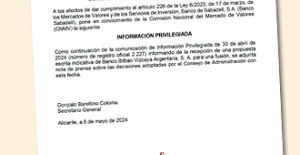 Sabadell rejects the merger with BBVA and will fight to remain alone
Sabadell rejects the merger with BBVA and will fight to remain alone In Germany, the far left wants to cap the price of “doner kebabs”
In Germany, the far left wants to cap the price of “doner kebabs” Israel-Hamas war: Gaza between hope of truce and fear of Israeli offensive in the South
Israel-Hamas war: Gaza between hope of truce and fear of Israeli offensive in the South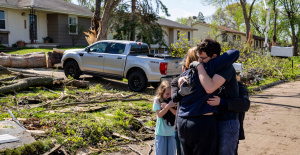 “Mom, Dad, please don’t die”: in the United States, a nine-year-old child saves the lives of his parents injured in a tornado
“Mom, Dad, please don’t die”: in the United States, a nine-year-old child saves the lives of his parents injured in a tornado The presence of blood in the urine, a warning sign of bladder cancer
The presence of blood in the urine, a warning sign of bladder cancer A baby whose mother smoked during pregnancy will age more quickly
A baby whose mother smoked during pregnancy will age more quickly The euro zone economy grows in April at its best pace in almost a year but inflationary pressure increases
The euro zone economy grows in April at its best pace in almost a year but inflationary pressure increases Children born thanks to PMA do not have more cancers than others
Children born thanks to PMA do not have more cancers than others “House of the Dragon”, “Succession”… Max, the new streaming platform from HBO and Discovery, launched in France on June 11
“House of the Dragon”, “Succession”… Max, the new streaming platform from HBO and Discovery, launched in France on June 11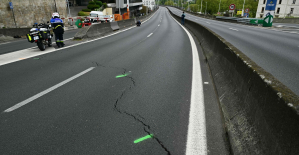 The A13 motorway will finally reopen this Friday, in one direction only
The A13 motorway will finally reopen this Friday, in one direction only TNT commission of inquiry: tensions between LFI deputies and Macronists before the vote on the report
TNT commission of inquiry: tensions between LFI deputies and Macronists before the vote on the report Apple unveils a new, more efficient iPad range
Apple unveils a new, more efficient iPad range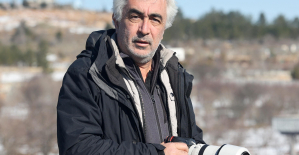 The Gaza War invites itself to the 2024 Pulitzer Prizes
The Gaza War invites itself to the 2024 Pulitzer Prizes Judith Godrèche presents a short film on sexual violence in Cannes
Judith Godrèche presents a short film on sexual violence in Cannes Kevin Spacey: new trial in sight in London for the American actor, for sexual assault
Kevin Spacey: new trial in sight in London for the American actor, for sexual assault Taylor Swift fans make London pub Black Dog their new place of pilgrimage
Taylor Swift fans make London pub Black Dog their new place of pilgrimage Omoda 7, another Chinese car that could be manufactured in Spain
Omoda 7, another Chinese car that could be manufactured in Spain BYD chooses CA Auto Bank as financial partner in Spain
BYD chooses CA Auto Bank as financial partner in Spain Tesla and Baidu sign key agreement to boost development of autonomous driving
Tesla and Baidu sign key agreement to boost development of autonomous driving Skoda Kodiaq 2024: a 'beast' plug-in hybrid SUV
Skoda Kodiaq 2024: a 'beast' plug-in hybrid SUV The home mortgage firm rises 3.8% in February and the average interest moderates to 3.33%
The home mortgage firm rises 3.8% in February and the average interest moderates to 3.33% This is how housing prices have changed in Spain in the last decade
This is how housing prices have changed in Spain in the last decade The home mortgage firm drops 10% in January and interest soars to 3.46%
The home mortgage firm drops 10% in January and interest soars to 3.46% The jewel of the Rocío de Nagüeles urbanization: a dream villa in Marbella
The jewel of the Rocío de Nagüeles urbanization: a dream villa in Marbella Institutions: senators want to restore the accumulation of mandates and put an end to the automatic presence of ex-presidents on the Constitutional Council
Institutions: senators want to restore the accumulation of mandates and put an end to the automatic presence of ex-presidents on the Constitutional Council Europeans: David Lisnard expresses his “essential and vital” support for François-Xavier Bellamy
Europeans: David Lisnard expresses his “essential and vital” support for François-Xavier Bellamy Facing Jordan Bardella, the popularity match turns to Gabriel Attal’s advantage
Facing Jordan Bardella, the popularity match turns to Gabriel Attal’s advantage Europeans: a senior official on the National Rally list
Europeans: a senior official on the National Rally list These French cities that will boycott the World Cup in Qatar
These French cities that will boycott the World Cup in Qatar “The future is for us”: “disappointed” and “proud” at the same time, Al-Khelaïfi sees the glass half full after the elimination of PSG
“The future is for us”: “disappointed” and “proud” at the same time, Al-Khelaïfi sees the glass half full after the elimination of PSG PSG: “Since January, these have not been my best matches,” agrees Zaire-Emery, who promises to “come back stronger”
PSG: “Since January, these have not been my best matches,” agrees Zaire-Emery, who promises to “come back stronger” “What is this question, honestly?” : Nasser Al-Khelaïfi (very) annoyed after PSG-Dortmund
“What is this question, honestly?” : Nasser Al-Khelaïfi (very) annoyed after PSG-Dortmund “I am the guy who has to score the goals”: Mbappé does not hide and assumes responsibility after PSG’s exit
“I am the guy who has to score the goals”: Mbappé does not hide and assumes responsibility after PSG’s exit